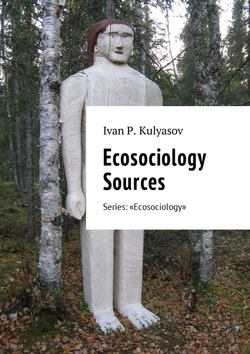Читать книгу Sources ecosociology. Series: «Ecosociology» - I. P. Kulyasov - Страница 7
Environmental theories
Social Darwinism
ОглавлениеThomas Robert Malthus (1766—1834), the author of the book on human population, is considered the predecessor of social Darwinism. In the book, he made a futuristic prediction that uncontrolled growth of human population would lead to food shortages and hunger, saying that the poor would die out from hunger while the rich would survive4.
Charles Robert Darwin (1809—1882) and his work about the origin of species made5 a great influence on the emergence of social Darwinism. However, Darwin emphasized that people were influenced not only by biological laws and conditions of life but by their skills to invent new tools and create new conditions of life. He also said that biological evolution of humans was incomparably slower than the development of technology and culture. In contrast with social Darwinists, Darwin never applied his concept of natural selection to humans, cultures and countries. As for social Darwinists, they use the ideas of Malthus and Darwin to propagate the ideas of militarism, eugenics and racism, which are now universally convicted.
Spenser also made a significant contribution to the development of social Darwinism. He is the author of phrase “survival of the fittest” and published the book titled “Progress: Its law and cause”, where he argues on progress of the universe as a universal law for the stars, human intelligence, and biological organisms, and introduces the notion of social progress6.
Social Darwinism became internationally known in the late 19th – early 20th centuries. Its authors, while narrowing the patterns of social development down to objective laws of biological evolution, proclaimed the principles of natural selection, struggle for existence and survival of the fittest as the critical factor of social life. Social evolution justifies social inequality of individuals as well as of countries, cultures, peoples, races and so on.
Social Darwinism was further developed by authors who founded the geographical school in the 19th century. The geographic school ascribes the crucial role in the development of societies and peoples to their geographical location and natural conditions, including access to vital and strategically important natural resources.
For example, Henry Thomas Buckle (1821—1862), studying the history of England and its colonies, described the specifics of physical build, spiritual dimension and culture of various peoples and concluded that were interrelated with their geographical location, landscape, climate, soil and food7.
4
Malthus T.R. Essay on the principle of population. 1798.
5
Darwin Ch. R. On the origin of species by means of natural selection, or the preservation of favoured races in the struggle for life. 1859.
6
Spencer H. Progress: Its law and cause. Chapman’s Westminster Review. 1857.
7
Buckle H.T. History of civilization in England. 1857—1861.
